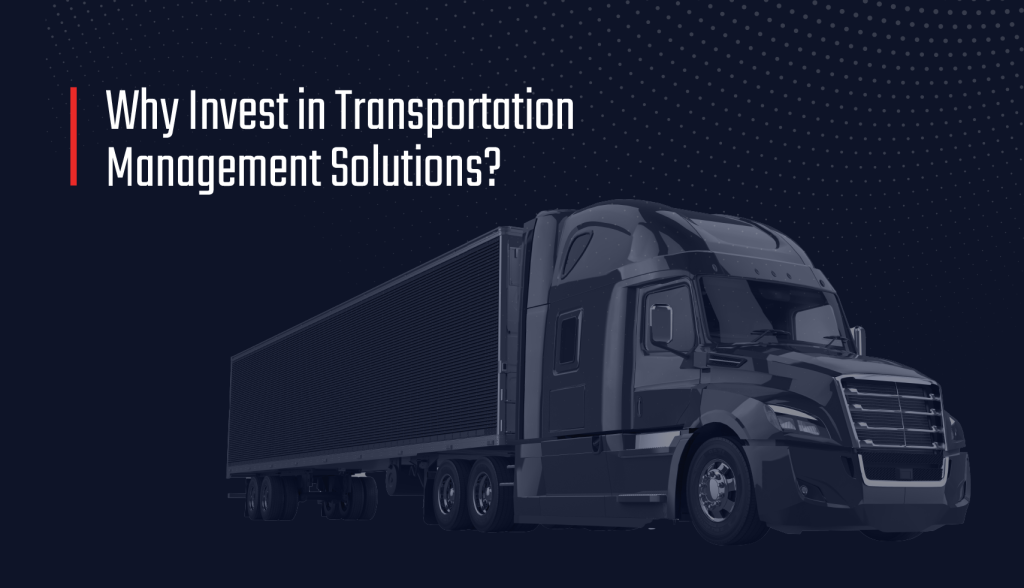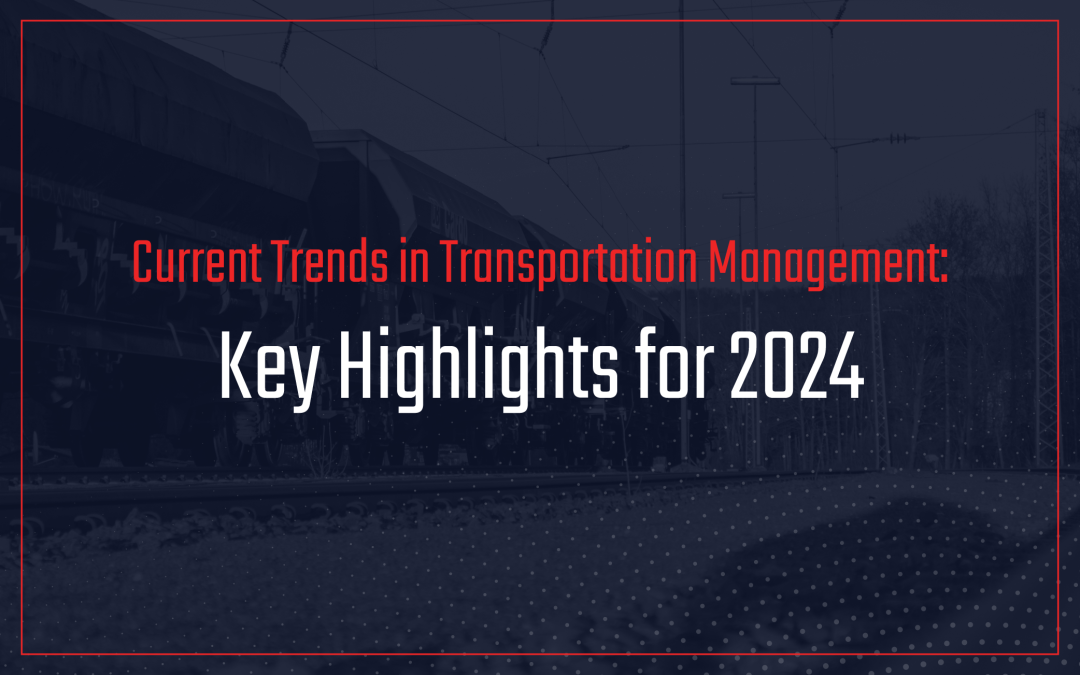The transportation management and logistics landscape is rapidly evolving, driven by technological advancements, a growing emphasis on sustainability, and the need for greater operational efficiency. As we step into the second half of 2024, staying current on the latest trends and insights shaping the industry is essential.
Join us as we unpack these key topics and provide you with the knowledge you need to successfully navigate the future of transportation management.
How Does Your Freight Invoice Audit Provider Measure Up?
Choosing the right freight invoice audit provider empowers your organization to maintain financial accuracy and operational efficiency. These providers help you avoid overcharges and keep a vigilant eye on your transportation spend and activity. However, not all providers offer the same level of service.
Here are seven key factors to consider when selecting a freight audit provider:
- Accuracy in audits. It is crucial to ensure that the provider offers precise auditing services. Accurate audits help identify discrepancies and overcharges, delivering significant savings over time.
- Transparency in reporting. A good audit provider should offer clear and transparent reporting. This means easy-to-understand reports that give you a detailed view of your expenses and any identified issues.
- Proactive issue resolution. The ability to resolve issues quickly is vital. A top-notch audit provider will identify problems, offer solutions, and take corrective actions promptly.
- Scalability of services. As your business grows, so will your auditing needs. Ensure that your provider can scale their services to match your growing requirements without compromising on quality.
- Integration capabilities. Your freight audit provider should seamlessly integrate with your existing systems. This integration ensures smooth data flow and helps in maintaining consistency across various platforms.
- Cost-effectiveness. While it’s important to get high-quality service, it’s also essential to ensure that the services are cost-effective. The right provider will offer a balance of quality and affordability.
- Customer support quality. Excellent customer support is non-negotiable. Your provider should be easily accessible, responsive, and willing to assist you whenever needed.
Creating a Sustainable Future in Transportation
Today’s transportation methods rely heavily on fossil fuels, posing significant environmental challenges. As consumer demand for sustainability rises, companies must adapt to reduce carbon emissions, especially within their transportation operations.
 A fragmented approach won’t suffice; a holistic, single-point-of-view approach is necessary. IntelliTrans Director of Operations Brian Cupp shared his insights with Supply Chain Brain on taking the first step towards a greener supply chain.
A fragmented approach won’t suffice; a holistic, single-point-of-view approach is necessary. IntelliTrans Director of Operations Brian Cupp shared his insights with Supply Chain Brain on taking the first step towards a greener supply chain.
According to Brian, the transition to sustainable transportation involves not only adopting green technologies but also integrating these solutions into a cohesive, efficient system.
Here are Brian’s strategies for a sustainable supply chain future.
- Take a holistic approach to sustainability. Embracing sustainability requires a shift from traditional fragmented approaches to a unified strategy. By viewing your transportation operations as a single entity, you can better manage resources, optimize routes, and reduce emissions more effectively.
- Adopt green technologies. Using electric and hybrid vehicles, as well as alternative fuels, can significantly reduce greenhouse gas emissions. Integrating these technologies into your fleet is crucial to achieving sustainability goals.
- Leverage data for sustainability. Data plays a critical role in driving sustainability. By analyzing transportation data, companies can identify inefficiencies and areas for improvement. This data-driven approach ensures that sustainability efforts are both practical and measurable.
- Collaborate for a greener future. Collaboration with partners and stakeholders is essential. By working together, companies can share best practices, pool resources, and create more impactful sustainability initiatives. This collective effort is key to making substantial progress in reducing carbon footprints.

Why Invest in a TMS Solution?
Transportation management is crucial for the smooth functioning of supply chains and logistics operations, now more than ever.
Here are three compelling reasons why investing in a transportation management system (TMS) is beneficial:
- Increase on-time deliveries. A TMS enhances transparency within the supply chain, potentially improving on-time deliveries by as much as 20%. This improvement can lead to increased customer satisfaction and better overall efficiency.
When deliveries arrive on time, they boost customer trust and optimize inventory management, reducing the need for excess stock and thus cutting costs. - Automate supply chain processes. Automation is a significant advantage of TMS, reducing the time needed for organizational tasks and improving employee productivity by up to 35%. This efficiency gain allows your team to focus on more strategic activities.
Automated systems can handle routine tasks such as scheduling, tracking shipments, and generating invoices, freeing up valuable time for employees to concentrate on more complex problem-solving and decision-making processes. - Be proactive about transportation delays. With comprehensive analytics, a TMS can identify potential issues before they become major problems, allowing you to reduce transportation costs swiftly and effectively. By leveraging predictive analytics, you can foresee delays caused by weather, traffic, or other disruptions and proactively mitigate these issues.
This proactive approach not only saves money but also ensures a smoother supply chain operation, enhancing overall service reliability.
Learn more about IntelliTrans’ transportation management system.
Looking Ahead
As we progress through 2024, the transportation management and logistics sector continues to evolve. By investing in TMS solutions, selecting the right freight invoice audit providers, and committing to sustainable practices, companies can stay ahead of the curve and meet the industry’s growing demands.
Stay tuned for more updates and insights as we navigate the exciting developments in transportation management.


